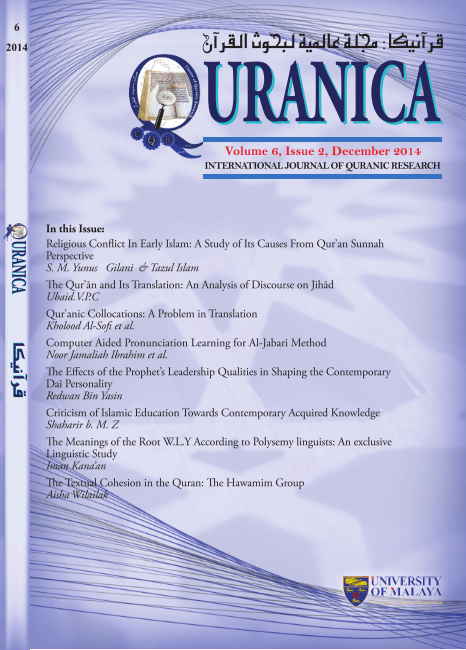Criticism of Islamic Education towards Contemporary Acquired Knowledge
Main Article Content
Abstract
The present Islamic educations models are criticised for not having the effect of changing the intellectual knowledge at any level of education. Each of the model was developed based on the assumption that the substance of the present intellectual knowledge is without any weakness but it is only necessary be further confirmed positively by those considered relevant verses of the al-Qur’aan. Further an education system is assumed to be Islamic by adding extra subjects consists of “Islamic religion” or “Islamic studies” which includes such as fiqah (Islamic rules, regulations, laws and jurisprudence), tawhid (knowledge on the oneness of God), sirah (History of the Prophet), history of Islamic Civilisation, Islamic philosophy, Arabic language, and memorizing al-Qur’aan. Compatible with those assumptions, the production of the contemporary intellectual knowledge for the purpose of using it as teaching materials in such an envisaged Islamic education is through confirmation of the present knowledge using some quranic verses or by confirming the truth al-Qur’aan by the method of, or using directly, the available contemporary knowledge. In this paper, the implementation of such an Islamic education model and the production of an Islamic knowledge are regarded as unacceptable. For overcoming the shortcoming, a pre-islamisation of knowledge is proposed. This done by criticizing the contemporary intellectual knowledge using al-Qur’aan. This is presented by giving examples of our pre-islamisation results in some fields in social sciences and humanities such as economics, management and finance, and in cosmology-cosmogenesis, each of which presently regarded as already compatible with Islam.
Downloads
Article Details
Disclaimer
QURANICA makes every effort to ensure the accuracy of all its contents. However, opinions, discussions, views and recommendations are expressed in this journal do not necessarily reflect the official policy of QURANICA or views of its editors or publishers. Therefore, QURANICA and its publishers will not be liable for any controversy may be arisen. The journal reserves the right, at its sole discretion, to change its terms and conditions of publications.
Copyright
It is a condition of publication that manuscript submitted to the journal have not been published, accepted for publication, nor simultaneously submitted for publication elsewhere. By submitting a manuscript, the author(s) agrees that copyright for the article is transferred to the publisher, if and when the manuscript is accepted for publication.
